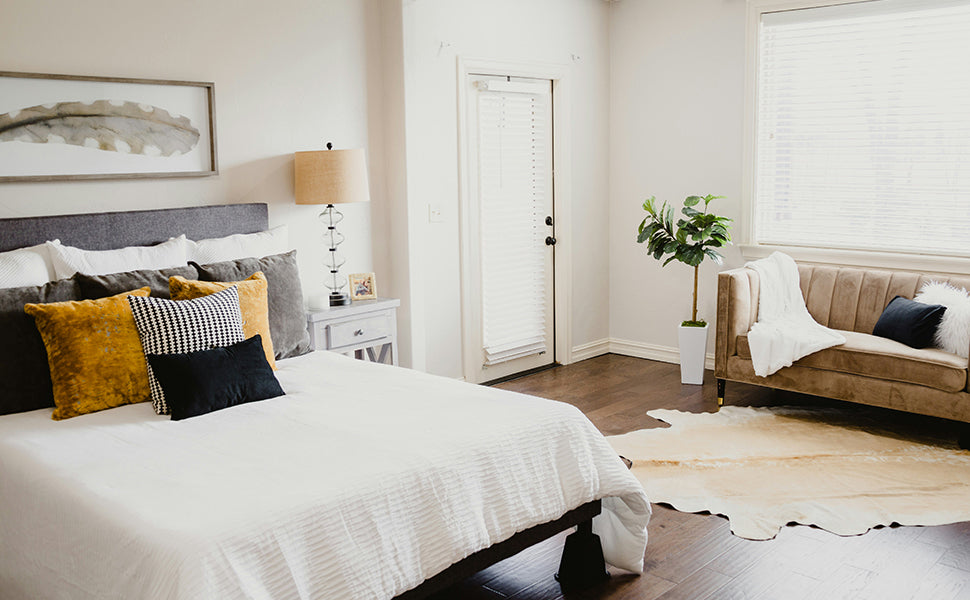StorageWorks - Mar 24 2022
Bed Time Stories
Famous Beds: William Shakespeare's Best Beds

Most of us enter this world on a bed, and many of us leave on one. We spend more time in bed than we do anywhere else. So, buying a new bed is an important decision. The style, the size, the price and other factors come into play.But how often do we really think about the whole idea of ‘bed’? And do you know any famous beds?
The earliest beds were just piles of leaves or straw scattered on the floor. Sometimes they included fragrant herbs to ward off insects. For centuries that was what most people slept on. Visitors to Cairo can see Tutankhamun’s bed, but it doesn’t look very comfortable by modern standards.
Some beds have become legendary in their own right and have stories to tell. We intend to bring you some of these stories over the next few weeks.
Shakespeare’s Use of ‘Bed’
First, we will go back some 400 years to William Shakespeare (1564-1616). In his plays, Shakespeare uses the word ‘bed’ 268 times, with it turning up in almost every play. In his Romeo and Juliet, he mentions ‘bed’ twenty times. For instance, Romeo’s friend Mercutio says to Romeo, “I'll to my truckle-bed. / This field-bed is too cold for me to sleep.” Few of us today probably even know what a truckle bed is. Fashionable beds at the time were rather high, with a large space underneath. A truckle bed was a spare bed that could be stored under the main bed and pulled out for guests. Also, sometimes called a trundle bed. A field bed we can guess is what we might call a camp bed today.
But it is not in his plays that we come across Shakespeare’s use of ‘bed’ where we least expect it. About a month before he died, he added a codicil to his will, reading, “Item I gyve unto my wief my second best bed with the furniture.” (Furniture here refers to the bedclothes and perhaps a curtain.)

Shakespeare’s Will
By William Shakespeare and unknown scribe, Shakespeare-Testament, marked as public domain, more details on Wikimedia Commons
Why the Second Bed?
For many years, people assumed that this was some kind of strange insult and asked what happened to the best bed! Indeed, the Shakespeare’s had an unusual relationship. He lived and worked in London for around 20 years while she remained at home in Stratford-upon-Avon. You couldn’t hop on a train and go home for the weekend! But he did return in 1612, four years before his death, aged only 52.
Today, many historians and scholars believe it was, in fact, an act of endearment – specifically leaving what would have been the marital bed to his wife. This, after all, is where in all probability Will had fathered two of their three children – their first child Susanna having been conceived before the wedding!
In those days, the best bed was reserved for honored guests and would have been kept on display to show one’s wealth. Mr. and Mrs. Shakespeare probably never slept in it. Sadly neither bed has survived, although beds from the time are on display in Shakespeare’s birthplace in Stratford.
Were you living in the time of Shakespeare, which bed would you leave to your spouse?




